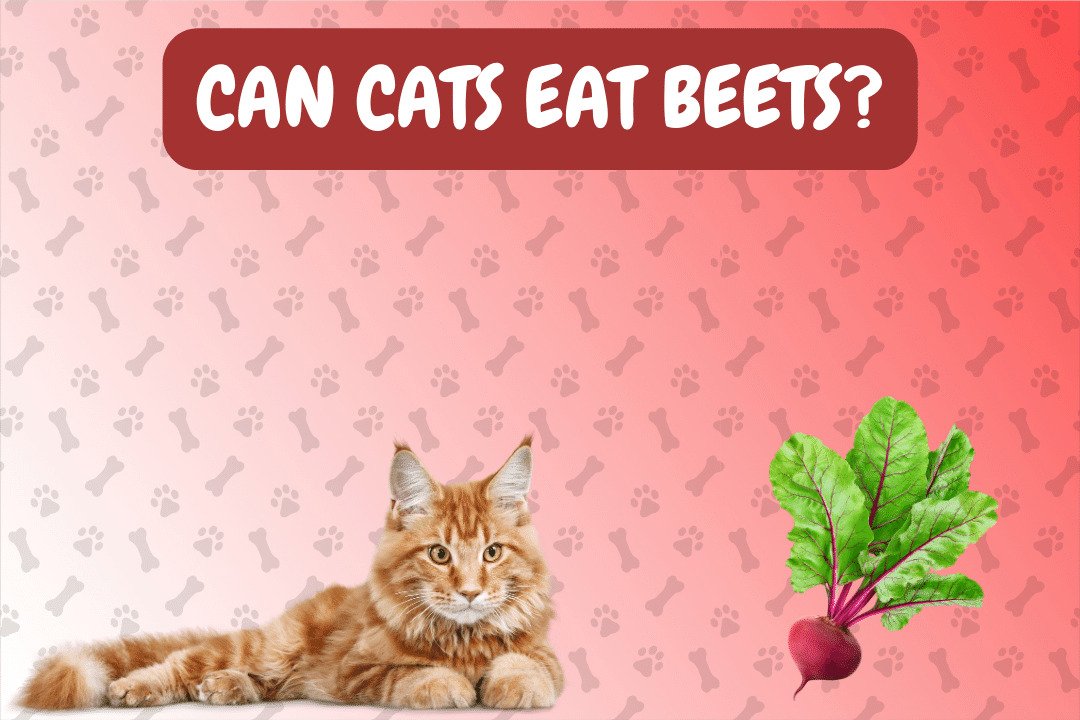No, cats can’t eat beets because they lack the necessary digestive enzymes to process this root vegetable effectively.
Table of Contents
Introduction
Cats are known for their discerning palates, and their dietary needs are quite different from those of humans. While it’s tempting to share a variety of foods with our feline friends, not all human foods are safe for them. In this article, we’ll explore whether cats can safely consume beets, delve into the nutritional aspects, discuss potential risks, and provide expert recommendations.
Nutritional Value
Beets are a nutritious vegetable for humans, rich in vitamins, minerals, and fiber. They contain essential nutrients like vitamin C, potassium, and folate. However, cats have unique nutritional requirements that are primarily met through high-quality cat food. Their diet should consist mainly of animal-based proteins, and they do not need vegetables like beets to thrive.
Potential Risks
Feeding beets to cats can pose several risks:
- Digestive Upset: Beets are fibrous and can be challenging for cats to digest. Consumption may lead to stomach upset, including diarrhea or vomiting.
- Urinary Health: Beets are high in oxalates, which can contribute to the formation of urinary crystals in some cats. This can lead to urinary tract issues, which are common and potentially serious in felines.
- Blood Sugar: Beets contain natural sugars, which are not suitable for a cat’s diet. Cats are obligate carnivores and do not have the necessary enzymes to efficiently process sugars from plant sources.
How to Serve Safely
It’s best not to feed beets to your cat at all, as they offer little to no nutritional benefit for felines. Instead, focus on providing a balanced diet formulated specifically for cats to ensure they receive the nutrients they need.
Serving Suggestions
There are no recommended serving suggestions for beets when it comes to cats. Their diet should primarily consist of high-quality cat food designed to meet their unique nutritional requirements.
Special Considerations
Cats have specific dietary needs that revolve around animal-based proteins. While some vegetables can be safe in small amounts, beets are not among them. Always consult with a veterinarian before introducing any new food into your cat’s diet, especially if you have concerns about allergies or dietary restrictions.
Expert Opinion
Veterinarians and feline nutrition experts agree that beets should not be a part of a cat’s diet. Cats have evolved as obligate carnivores, and their digestive systems are optimized for meat consumption. Feeding them beets or other vegetables can upset their delicate balance of nutrients.
Conclusion
In conclusion, cats should not be fed beets. These root vegetables do not align with a cat’s nutritional needs and can potentially lead to digestive upset, urinary issues, and blood sugar imbalances. It’s always best to stick to a high-quality cat food that meets all of your feline friend’s dietary requirements.
FAQ
Q1: Can cats eat beet greens or beet tops?
A1: While beet greens are less risky than the beetroot itself, they are still not an ideal food for cats. Cats have specific dietary needs that are best met with a high-quality cat food.
Q2: What should I do if my cat accidentally ingests beets?
A2: If your cat consumes a small amount of beet accidentally and shows no immediate adverse reactions, monitor them closely for any signs of digestive upset. If you notice vomiting, diarrhea, or other concerning symptoms, contact your veterinarian.
Q3: Are there any vegetables that cats can safely eat?
A3: While cats are obligate carnivores, some vegetables in small quantities can be safe. These include cooked and mashed pumpkin or sweet potato, but they should still be a minor part of their diet.
Q4: Can beet juice be given to cats?
A4: No, beet juice is not recommended for cats either. It contains concentrated sugars and lacks the nutrients essential for feline health.
Q5: Can beets be used as a home remedy for cat health issues?
A5: It’s not advisable to use beets as a home remedy for any cat health issues. Always consult with a veterinarian for proper guidance and treatment.
Q6: Can cats eat pickled beets or beet pickles?
A6: No, pickled beets or any pickled vegetables are not suitable for cats due to their high sodium content and the presence of other potentially harmful ingredients.
Q7: What is the best diet for cats?
A7: The best diet for cats is one that consists of high-quality commercial cat food formulated to meet their specific nutritional needs. Consult with your veterinarian to choose the right food for your cat’s age, health, and lifestyle.
Q8: Can cats eat cooked beets?
A8: While cooking beets may make them slightly easier for cats to digest, it is still not recommended to feed them to your feline friend. Cats thrive on a diet rich in animal-based proteins.
Q9: Can cats eat beet chips or beet crisps?
A9: No, beet chips or crisps are not suitable for cats. They are often high in sodium and may contain other ingredients that can be harmful to felines.
Q10: Can I give my cat beet supplements or beet powder?
A10: It is not advisable to give cats beet supplements or beet powder. Cats do not require these supplements, and they may have adverse effects on their health. Always consult with a veterinarian before giving any supplements to your cat.
For more Cats food informations, read our blog.
Hello! I’m Max Walley, a pet enthusiast who knows a lot about what our animal buddies can munch on and what’s a no-no. With ‘canpeteat.it,’ I’m here to help pet owners make smart food choices. Come with me as we dive into the world of pet nutrition, discovering what keeps our furry pals joyful and in tip-top shape. Let’s explore this adventure together!


